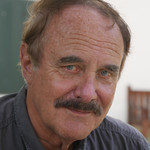Charles-Édouard Brown-Séquard Lecture - Awardees
Claudio Lino Alberto Bassetti
Charles-Édouard Brown-Sequard Award Lecture
Sleep by the brain, for the brain: Implications for neurology
Claudio Bassetti received his medical degree in Basel and trained in neurology in Bern and Lausanne. He completed his research fellowships in basic neurophysiology in Basel, and in sleep in Ann Arbor, Boston and Madison. In 2000, he became professor and vice-chair of neurology in Zurich. In 2009 he founded the Neurocenter of Southern Switzerland. From 2012 until 2024 he chaired the Neurology Department of the University Hospital in Bern, Switzerland.
Since 2020 he is the Dean of the Faculty of Medicine in Bern.
Bassetti’s major scientific interests are the relationship between sleep and neurological disorders and teaching in general neurology. He has published more than 600 articles and 10 books, and has an H-Index of 105.
Bassetti has served as president of the European Neurological Society, European Sleep Research Society and Swiss Neurological Society. He is an elected member of the Swiss Academy of Medical Sciences, which he served as board member for eight years. He was president of the European Academy of Neurology from 2019 to 2022 and is currently the EAN Representative to the Board of the European Brain Council. Prof. Bassetti launched the EAN Brain Health Plan in 2022 and the Swiss Brain Health Plan in 2023.

Prof. Marie Vidailhet
Charles-Édouard Brown-Sequard Lecture
How clinical observations challenge neuroscience
Marie Vidailhet is Professor of Neurology, in Salpêtrière Hospital, Sorbonne Université, Paris, France and Fellow of the European Neurogical Society. She has a long-standing interest in movement disorders, Parkinson’s disease and dystonia and her main interest is movement disorders, both in clinic (National Reference center for Dystonia and ERN network) and research from pathophysiology to experimental therapeutics. Her research group at the ICM research institute and contributed to the field of pathophysiology of dystonia and other rare movement disorders, and to the development of therapeutic approaches.
She is actively involved in the European Academy of Neurology since the very beginning (Faculty, Education Committee and Program Committee, and Board member (Scientific Committee then Treasurer) . She is also active in the Movement Disorders Society including Faculty at the International MDS conferences and at the Winter and Summer MDS-ES courses.
Over the years, she co-authored over 400 publications (total H index 91)
She is very invested in the mentorship and training of young neurologists, many of them part of the EAN fellowship program. Her objective is to develop, both in her team and at the European level team spirit, enthusiasm and creativity in everyday clinic with a background in neuroscience (pathophysiology) and translational research (improving diagnosis and treatment).

Prof. Mark Hallett
Charles-Édouard Brown-Sequard Lecture
Experimental Medicine and Functional Neurological Disorders
Dr Hallett is National Institutes of Health (NIH) Distinguished Investigator Emeritus after leading the National Institute of Neurological Disorders and Stroke Human Motor Control Section from 1984 to 2022.
He became an Honorary Member of the EAN in 2018. He is the immediate Past-President of the Functional Neurological Disorder Society, a past President of the International Parkinson and Movement Disorder Society and the International Federation of Clinical Neurophysiology, and past Editor-in-Chief of Clinical Neurophysiology. He has won many awards, including the World Federation of Neurology Medal for Contributions to Neuroscience. His work mainly deals with principles of motor control and the pathophysiology of movement disorders.
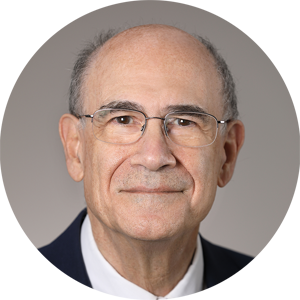
Prof. Kailash P. Bhatia
C. Brown Séquard
“The translational clinician: big gains from small observations”
Kailash Bhatia is a professor of neurology at the Institute of Neurology, UCL, Queen Square, London. An astute clinical and translational researcher in movement disorders, he merges clinical, genetic and electrophysiological findings to describe phenotypes and pathophysiology. He has published extensively, with more than 680 peer reviewed publications and several books to his name, including the acclaimed reference tome Marsden’s book of Movement Disorders, which was the recipient of BMA best neuroscience book award in 2013. He is an active member of EAN in various capacities.
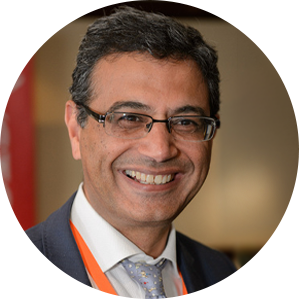
Jean-Claude Baron, Paris, France and Cambridge, United Kingdom
Edouard Brown-Séquard Lecture
The core/penumbra model: implications for acute stroke treatment and patient selection in 2021
Professor Jean-Claude Baron trained in Clinical Neurology at the Salpêtrière Hospital, Paris, then in functional brain imaging and medical physics at Harvard, USA and the Atomic Energy Commission, France. He holds a Doctorate in Science from the University of Cambridge, UK, and is a Fellow of the UK Academy of Medical Sciences, of the UK Royal College of Physicians and of the European Stroke Organization. He created and directed from 1988 to 2000 the Inserm Neurosciences unit, and was Scientific Director of the CYCERON Neuroscience Centre, at the Université de Basse-Normandie, Caen, France. From 2000 to 2010, he held the Chair of Stroke Medicine at Cambridge University and was Honorary Neurology consultant at Addenbrooke’s Hospital, Cambridge, UK. Since 2010 he has worked as Director of Research at the Inserm/Paris University Research Centre for Psychiatry and Neuroscience (Deputy-Director: 2010-2015), as well as Neurology consultant at Sainte-Anne Hospital. He is a pioneer in the applications of PET in cerebrovascular diseases and has used this technique along with other imaging modalities including CT, MR and SPECT to study the pathophysiology of cerebrovascular diseases and the mechanisms underlying post-stroke recovery, both in patients and animal models. His main contributions include i) the documentation of the existence of the ischemic penumbra in man; ii) the concept that advanced imaging should be used to select acute stroke patients for personalized therapy and trials; iii) the demonstration of the hemodynamic basis of some carotid-territory TIAs; and iii) the discovery of crossed cerebellar diaschisis. He has also made significant contributions in the field of neurodegenerative disorders. He was awarded the European Stroke Conference Johannes Wepfer award in 2005, and the 2014 French Academy of Sciences Mémain-Pelletier award. He has published over 450 peer-reviewed articles and has over 30,000 citations (h-index: 95).
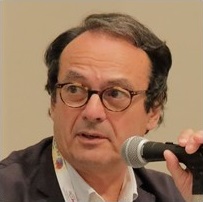
Steven Laureys, Liege, Belgium
Edouard Brown-Séquard Lecture
Coma & chronic disorders of consciousness: in need of better neurological understanding & care
Watch the interview with Steven Laureys here
Ulrich Dirnagl, Berlin, Germany
Edouard Brown-Séquard Lecture
Do we need to reinvent translational cerebrovascular research?
At the Charité Universitätsmedizin Berlin Ulrich Dirnagl is Professor for Clinical Neurosciences and serves as Director of the Department of Experimental Neurology. Since 2017 he is also the founding director of the QUEST Center for Transforming Biomedical Research at the Berlin Institute of Health. QUEST aims at overcoming the roadblocks in translational medicine by increasing the value and impact of biomedical research through maximizing the quality, reproducibility, generalizability, and validity of research. In preclinical as well as in clinical studies Ulrich Dirnagl’s research has revealed pathobiology which impact on the outcome after a stroke. These include deleterious as well as endogenous protective mechanisms, as interactions of the brain with other systems of the body after it has been injured. Several of these mechanism can be therapeutically targeted, clinical trials are under way. In addition, through meta-research he was able to identify opportunities for improving research practice and to obtain evidence for the impact of interventions targeted to increase the value of biomedical research.
Watch the interview with Ulrich Dirnagl here
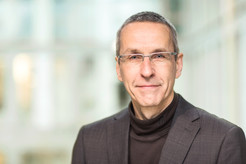
Philip Scheltens, Amsterdam, The Netherlands
Edouard Brown-Séquard Lecture
The evolution of Alzheimer's disease and dementia
Prof. Dr. Philip Scheltens studied at the VU University Amsterdam, Netherlands, gaining his MD in 1984, and PhD (Magnetic Resonance Imaging in Alzheimer’s disease) in 1993. Since 2000 he is Professor of Cognitive Neurology and Director of the Alzheimer Center at the VU University Medical Center in Amsterdam. His main clinical and research interests are Alzheimer’s disease, vascular dementia, frontotemporal dementia, magnetic resonance imaging, PET imaging and fluid biomarkers. He is active in the field of biomarkers and clinical trials and has been the national PI for many studies, including phase 1-3 multicenter clinical trials. He founded and directs the Alzheimer Center since 2000, from which over 55 PhD theses have appeared since then. In 2013, he co-founded the Dutch national plan against dementia (Deltaplan Dementie) and serves as vice-chair of the board since then. He has authored over 850 peer reviewed publications and his H-factor is currently 103. In 2011, he was elected as member of the Royal Dutch Academy of Arts and Sciences (KNAW) and serves as
Secretary General since 2015. In 2016 he was awarded the European Grand Prix for Alzheimer’s Research.
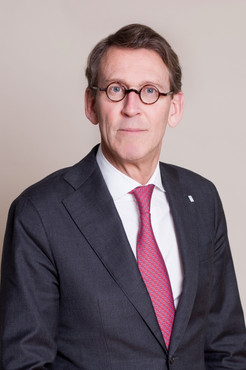
Richard Frackowiak, Paris, France
Charles-Edouard Brown-Sequard Lecture
Why Neurologists Should Be Interested in the Human Brain Project: A Change of Clinical Paradigm
Prof. Richard Frackowiak, retired as head of the Department of Clinical Neurosciences at the Université de Lausanne (UNIL) and its Centre Hospitalier Universitaire Vaudois (CHUV) in 2015. Formerly, he served as Foundation Professor of Cognitive Neurology at University College London (UCL), Director of the Department of Cognitive Studies (DEC) at the Ecole Normale Superieure in Paris, Wellcome Trust Principal Clinical Research Fellow and Vice-Provost of UCL. He founded the Wellcome Department of Imaging Neuroscience and its Functional Imaging Laboratory (FIL) in 1994. An MA and MD from Cambridge (Peterhouse). A pioneer of human brain imaging research, he developed a number of techniques and applied them to the investigation of human brain structure-function relationships in health and disease. There is a translational component to his recent research involving novel image classification techniques for individual studies. He continues his work in the “The Human Brain Project”, which he
and colleagues started, for which he retains honorary professorships at the EPFL, UNIL, and UCL. He is also attached to the ENS in Paris where he now lives. As past president of the British Neuroscience Association and of the European Brain and Behaviour Society, he has held prestigious visiting professorships, editorships and international society roles worldwide. His papers and the book “Human Brain Function” are highly cited (Google h-index = 192). He has been a laureate of the
Ipsen, Wilhelm Feldberg, Klaus Joachim Zulch and Ottorino Rossi prizes.
Watch the interview with Richard Frackowiak here
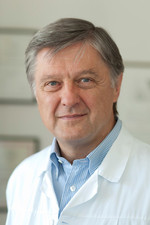
Thomas Brandt, Munich, Germany
Charles-Édouard Brown-Séquard Lecture
3-D Spatial Memory and Navigation: Functions and Disorders
Prof. Thomas Brandt studied medicine at the Universities of Cologne and Essen. His clinical training was under Richard Jung in Neurology and Clinical Neurophysiology in Freiburg. From 1976 to 1984 he was Director of the Neurological Clinic of the Alfried Krupp Hospital in Essen, and from 1984 to 2008 Chairman of Neurology and Director of the Department of Neurology of Munich University. He has held a Hertie Senior Research Professorship since 2008 and is also Chief Executive Director of the German Center for Vertigo and Balance Disorders of Munich University.
Prof. Brandt was formerly President of the German Neurological Society, the German Society for Clinical Neurophysiology and Functional Imaging, the International Society for Posture and Gait Research, and the European Neurological Society. He is an honorary member of the German, British, and French Neurological Societies, a member of the Bavarian Academy of Sciences, and of the German Academy of Life Scientists, Leopoldina. Awards include the Srinivasan Gold Medal, the Betty and David Koetser Prize for Brain Research, the Bárány Gold Medal, the Doctor Robert Pfleger Award, the Hans Berger Prize, the Wilhelm Erb Medal, and the Federal Cross of Merit, Germany.
Major research fields: general neurology and management of dizzy patients, basic mechanisms of vertigo, balance and ocular motor disorders, locomotion, visual-vestibular interaction, motion perception, spatial orientation, and navigation. Applied methods are stance and gait analysis, eye movement recordings, other neurophysiological measures, as well as psychophysics, functional imaging with MRI and PET, and modeling sensorimotor control.
Watch the interview with Thomas Brandt here
